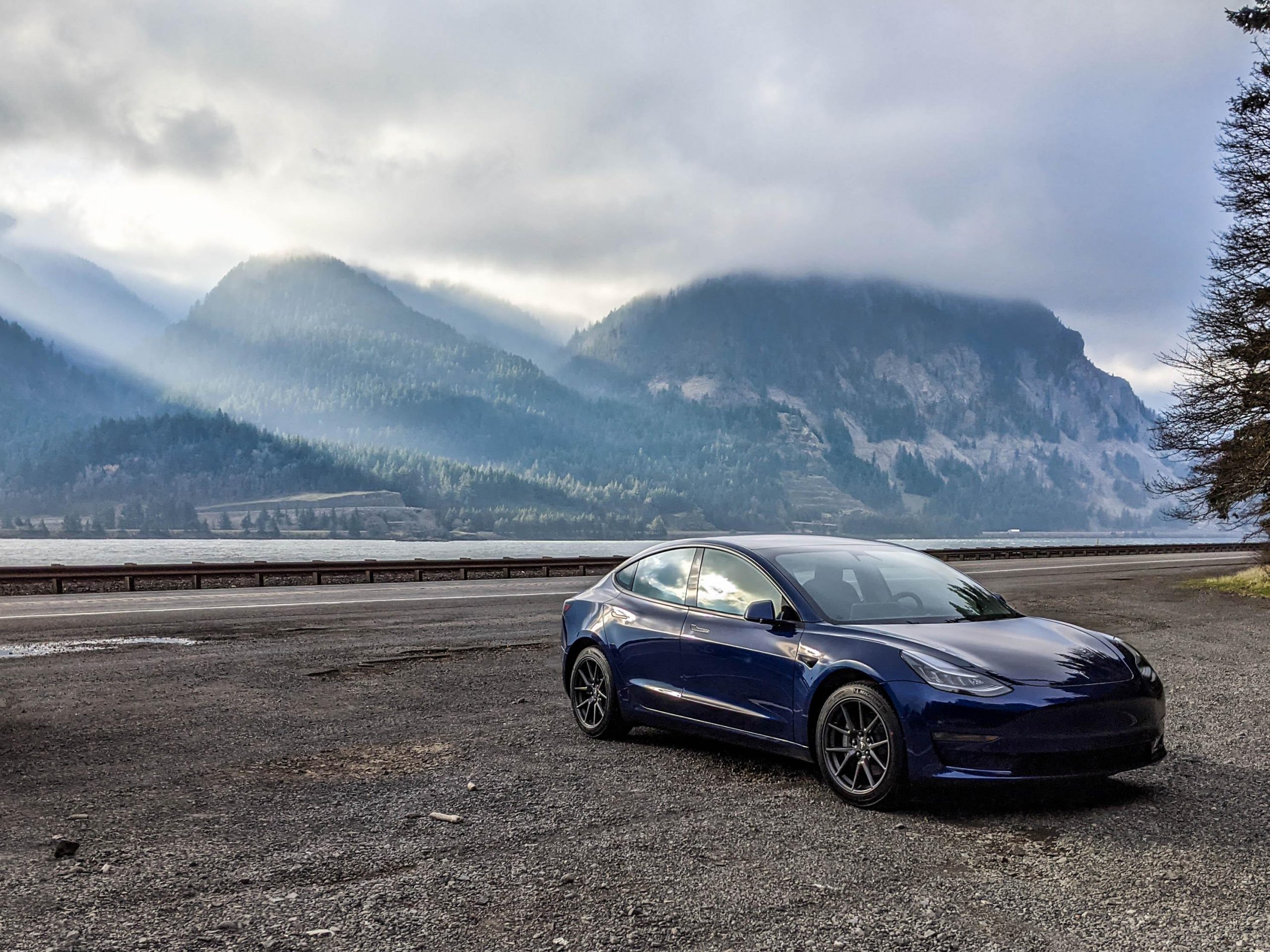
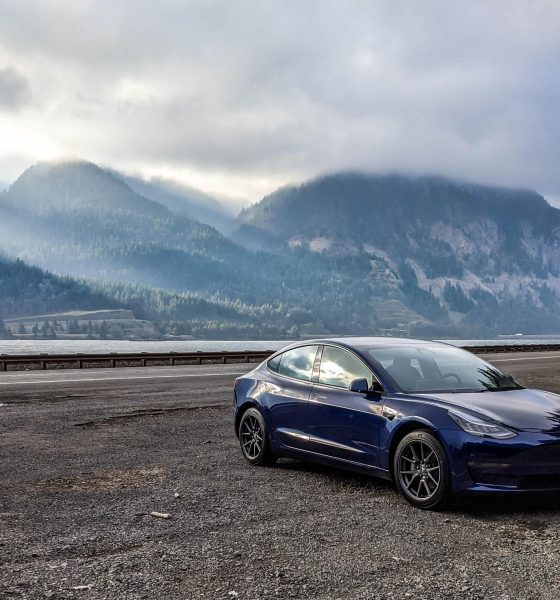
News
Tesla’s 2020 Aftermath: A look at the shorts who said 500k was ‘absurd’
Tesla’s 2020 showing has created an aftermath of reflection from bulls and bears alike. Despite the company coming off of a record year with a massive 500,000 vehicle delivery and production rate, which was considered “absurd” by some short-sellers in years past, Tesla proved the doubters wrong once again.
Everyone knows that the stock market is really an unpredictable and unfathomably tough thing to read. Some of the world’s best analysts can misread even the slightest bit of data and be miles off of what a particular stock accomplishes. Tesla, which is one of the more polarizing stocks despite its 700% climb in 2020, has had doubters since day 1. The difference between doubters of Tesla and doubters of other companies is that Tesla shorts and bears are some of the most vocal on Wall Street because the company’s momentum and hype have been talked about for nearly a decade.
2020 was easily the toughest year for the U.S. automotive market since the Great Recession of 2008. Tesla was one of the few companies that accomplished the feat of sustaining growth through the year of the COVID-19 pandemic, which crippled many industries, not just the automotive one, for most of the year. However, doubts on Tesla set in way back when the company started in 2008. Six years after Tesla built the original Roadster, analysts were still curious about the automaker’s capabilities moving forward and doubted that it would be able to scale its production to half-a-million cars by 2020. The old saying goes, “hindsight is 2020,” and as Tesla reached its goal for the year, it is easy to sit back and judge those who were wrong. However, their reasoning for not reaching 500,000 vehicles was completely flawed, and everything Tesla said it would do years ago has been accomplished.
Mark Spiegel called 500,000 cars in 2020 “absurd”
Mark Spiegel is a notable Tesla short-seller and has been bearish on the automaker’s stock for years. In 2014, Spiegel posted an article to Seeking Alpha, titled, “Why Projections For Tesla To Sell 500,000 Cars In 2020 Are Absurd.”
Spiegel used data like the compound annual growth rate to support his evidence, stating, “If Tesla sells 35,000 cars this year, 500,000 sales in 2020 would imply a six-year CAGR of 56%.” Additionally, Spiegel did not believe that Tesla could scale growth at that rate in six years because “no complex product manufacturer has ever grown that quickly from a revenue base of $3 billion or more.” But hey, there is a first time for everything.
Microsoft was able to scale its CAGR by 32.1% from 1993 to 1999, which is a six-year time span and was identical to Tesla’s outlook that was challenged in the 2014 article. While Microsoft managed a remarkable 32.1% CAGR because of the evergrowing popularity of the computer and other technology, Tesla’s overwhelming growth throughout the same timespan was due to tech developments, industry influence, proving affordability of electric cars, and a consistent growth rate that proved the company was here to stay.
Spiegel’s outlook for 2020 was 186,000 cars sold by Tesla, but the company managed to nearly accomplish this figure in Q4 alone, as it delivered 180,570 cars in the final three months of the year. Spiegel was way off in his predictions, and Tesla’s domination in 2020 was just one of many examples of analysts getting it completely wrong.
Tesla wasn’t a prime candidate for scaling its products, according to Thomas Bartman
In an April 2015 article in the Harvard Business Review, Thomas Bartman wrote an opinionated piece called, “Why Tesla Won’t Be Able to Scale.” Bartman claimed that Tesla’s EVs were “not actually disruptive, which will likely cause it to struggle to scale.” Bartman didn’t have the Model 3 to use as a benchmark at the time, but he doubted that Tesla would be able to sell a vehicle for $35,000, which it did.
“Tesla plans to launch a ‘mainstream’ luxury car, the Model 3,” Bartman wrote, “which it estimates will cost $35,000, although analysts have begun to question the feasibility of reaching that price point.” Tesla did discontinue this variant in late 2020, but the Standard Range Model 3 was available for over three years. The Standard Range+ was only $2,770 more and was more popular because of the range. Also, the SR was not listed on Tesla’s website and had to be ordered in a showroom or over the phone.
Bartman believed that Tesla had launched two good vehicles in the Model S and Model X, but legacy auto would quickly catch up after a few years. However, this has been proven wrong repeatedly, as companies like Mercedes-Benz and Audi have failed to launch effective and competitive EVs that are comparable to Tesla’s models globally. The Model 3 continues to dominate in China and the U.S., and the Model Y is gaining plenty of momentum as it nears the one-year mark since its first deliveries.
Tesla China Model Y attracts flocks of customers in local showrooms
“As Tesla attempts to scale, it’s likely to discover that its internal impediments, combined with competitor responses, make it much harder than anticipated,” Bartman said. “The symptoms of these problems will manifest as product launch delays, cost overruns, and higher than expected prices.”
The only issue is that Tesla was able to internally combat production issues, even though Elon Musk has admitted many times that Model 3 manufacturing was “production hell.” The company has effectively beaten all of its competitors to launching an effective and cost-worthy electric car by launching four of them.
Hindsight is 2020
With 2020 over (thank God), Tesla and analysts are already looking forward to the new year. 2021 has plenty in store for Tesla: Two production facilities in the U.S. and Europe are set to begin manufacturing efforts, the launch of the Cybertruck at the tail-end of the year, and a possible refresh of the Model S and Model X. Moving forward, Tesla shorts may be more cautious, especially considering their traumatic $38 billion loss this year.

News
Tesla influencers argue company’s polarizing Full Self-Driving transfer decision
Tesla maintains it will honor transfers for orders with initial delivery windows before the deadline and offers full deposit refunds otherwise, citing longstanding fine print that the program is “subject to change at any time.”
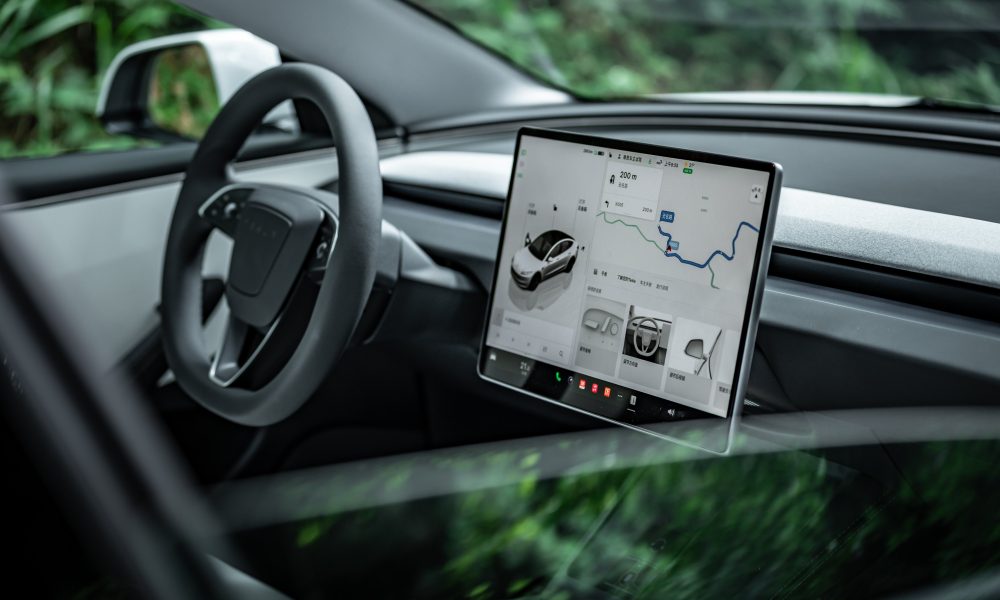
Tesla’s decision to tighten its Full Self-Driving (FSD) transfer promotion has ignited fierce debate among owners and enthusiasts.
The company quietly updated its terms in late February 2026, changing the eligibility from “order by March 31, 2026” to “take delivery by March 31, 2026.”
What began as a flexible incentive to boost sales, allowing buyers to transfer their paid FSD (Supervised) to a new vehicle, now excludes many, particularly Cybertruck owners facing delivery delays into summer or later.
Tesla maintains it will honor transfers for orders with initial delivery windows before the deadline and offers full deposit refunds otherwise, citing longstanding fine print that the program is “subject to change at any time.”
The reversal has polarized the Tesla community, with accusations of a “bait-and-switch” clashing against defenses of corporate pragmatism. Many owners who placed orders under the original wording feel betrayed, especially as production backlogs and new unsupervised FSD rollout complicate timelines.
However, Tesla has allowed them to cancel their orders and receive a refund.
Critics of the decision argue that the change disadvantages loyal customers who helped fund FSD development, calling it poor communication and a revenue grab as Tesla pivots toward subscriptions.
Popular influencers have amplified the divide. Whole Mars Catalog struck a measured but firm tone, acknowledging the original “order by” language but emphasizing Tesla’s right to adjust terms. He has continued to defend Tesla in this particular issue:
Sad to see so many fans trashing Tesla with such extreme language.
LIARS!!! PATHETIC!!! And if you aren’t as furious and angry as they are they are you’re “worshipping” and saying “they can do no wrong”.
Let’s get real here. They’re not liars. They offered FSD transfer to us… https://t.co/3Ay7vGaVR6
— Whole Mars Catalog (@wholemars) March 3, 2026
He criticized extreme backlash as “dramatization” and “spoiled kids,” noting the unsupervised FSD era and broader sales challenges make blanket transfers financially risky. Whole Mars advocated for polite outreach to CEO Elon Musk over the issue.
Rather than “calling them out”, I would simply say “Hey Elon, really hoped to be able to do FSD transfer on my cybertruck but the terms changed. Would really appreciate if Tesla could extend this to everyone who ordered before the terms changes”
that would probably work
— Whole Mars Catalog (@wholemars) March 3, 2026
In a contrasting perspective, Dirty TesLA voiced sharper frustration, posting that blocking transfers feels “crazy” and distancing himself from “people that want to worship a corporation and say they can do no wrong.” His stance resonated with owners who view the policy flip as disrespectful to early adopters.
Popular Tesla influencer Sawyer Merritt captured the frustration felt by thousands. In a widely shared thread viewed over 700,000 times, Merritt detailed how pre-change Cybertruck orders now risk losing FSD eligibility unless their initial delivery window falls before March 31.
It’s not a contradiction, it’s a change in policy that Tesla just made an hour ago. I am trying to check if the change is retroactive to all existing orders, including Cybertruck AWD orders, because if it is, that sucks big time.
— Sawyer Merritt (@SawyerMerritt) February 28, 2026
The controversy underscores deeper tensions—between Tesla’s need for revenue discipline and owners’ expectations of goodwill. As FSD evolves toward unsupervised capability, the community remains split: some see the change as necessary business, others as a broken promise. Whether Tesla reconsiders under pressure or holds firm remains to be seen, but it does not appear they are planning to budge.
News
Tesla Semi’s latest adoptee will likely encourage more of the same
Public visibility matters. When shoppers see a trusted name like Ralph’s running clean, high-tech trucks on public roads, skepticism fades. Competitors such as Albertsons, which pre-ordered Semis years ago, and other chains chasing ESG targets now have proof that electric autonomy works in real-world grocery fleets.
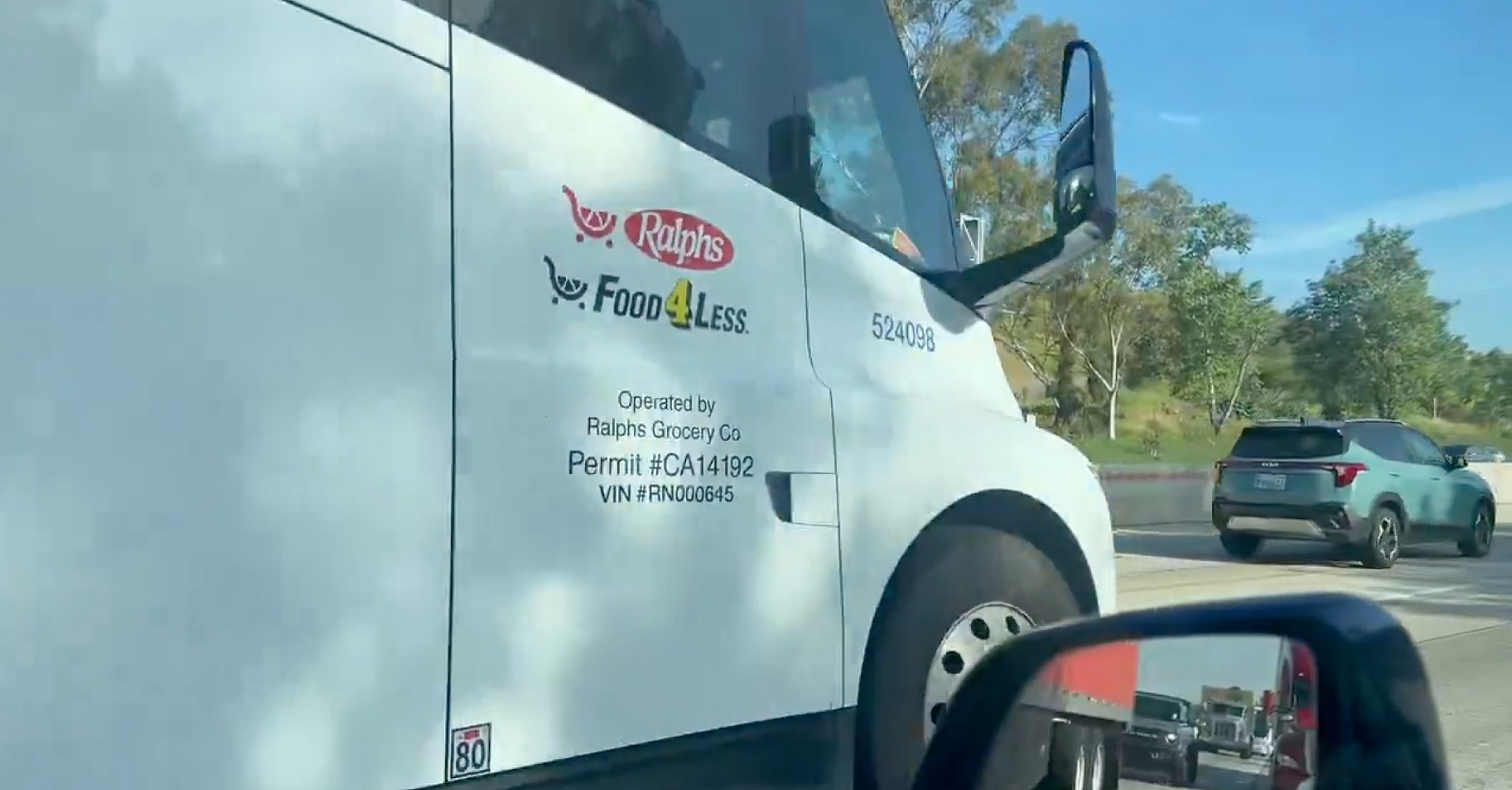
The latest adoptee of the Tesla Semi will likely encourage more businesses in the same realm to adopt the all-electric Class 8 truck, as a new company utilizing the Semi has been spotted in Southern California.
A sleek, futuristic Tesla Semi truck branded for Ralph’s Supermarkets was spotted cruising a Los Angeles highway in a viral 13-second dashcam video posted March 2, by X user ChargePozitive.
Tesla Semi Truck in the wild pic.twitter.com/SnQY8ShMMJ
— ChargePozitive ⚡️➕ (@ChargePozitive) March 2, 2026
This sighting confirms Kroger’s March 2025 partnership with Tesla to deploy up to 500 autonomous electric Semis.
While the initial announcement targeted Midwest supply chains, the California appearance under the Ralph’s banner shows the program expanding to Kroger’s West Coast operations. Ralph’s, a staple for millions of Southern California shoppers, is now hauling groceries with the Semi, which has zero tailpipe emissions and claims up to 500 miles of range per charge.
Tesla Semi pricing revealed after company uncovers trim levels
The timing could not be better for sustainable logistics. Traditional trucking accounts for a massive share of retail emissions, but Tesla’s Semi slashes fuel and maintenance costs while leveraging full autonomy to ease driver shortages and improve safety.
Tesla’s expanding Megacharger network, including new sites along major freight corridors and partnerships like the recently-announced one with Pilot Travel Centers, is removing range anxiety and making nationwide scaling realistic. There’s still a long way to go, but things are moving in the right direction.
Public visibility matters. When shoppers see a trusted name like Ralph’s running clean, high-tech trucks on public roads, skepticism fades. Competitors such as Albertsons, which pre-ordered Semis years ago, and other chains chasing ESG targets now have proof that electric autonomy works in real-world grocery fleets.
PepsiCo’s successful pilots already demonstrated viability, and Ralph’s sighting adds retail credibility.
As Tesla ramps high-volume Semi production through 2026, this isn’t an isolated curiosity. Instead, it’s a catalyst. More grocers adopting the platform will accelerate industry-wide decarbonization, cut operating expenses, and deliver tangible environmental wins.
The future of sustainable supply chains is already on the highway, and Ralph’s just made it impossible to ignore.
Moving forward, Tesla hopes to expand the Semi program into other regions, including Europe, which CEO Elon Musk recently said is a total possibility next year.
Elon Musk
Tesla ramps Cybercab test manufacturing ahead of mass production
Tesla still has plans for volume production, which remains between four and eight weeks away, aligning with Musk’s statements that early ramps would be deliberately measured given the Cybercab’s novel architecture and full reliance on Tesla’s vision-based Full Self-Driving technology.
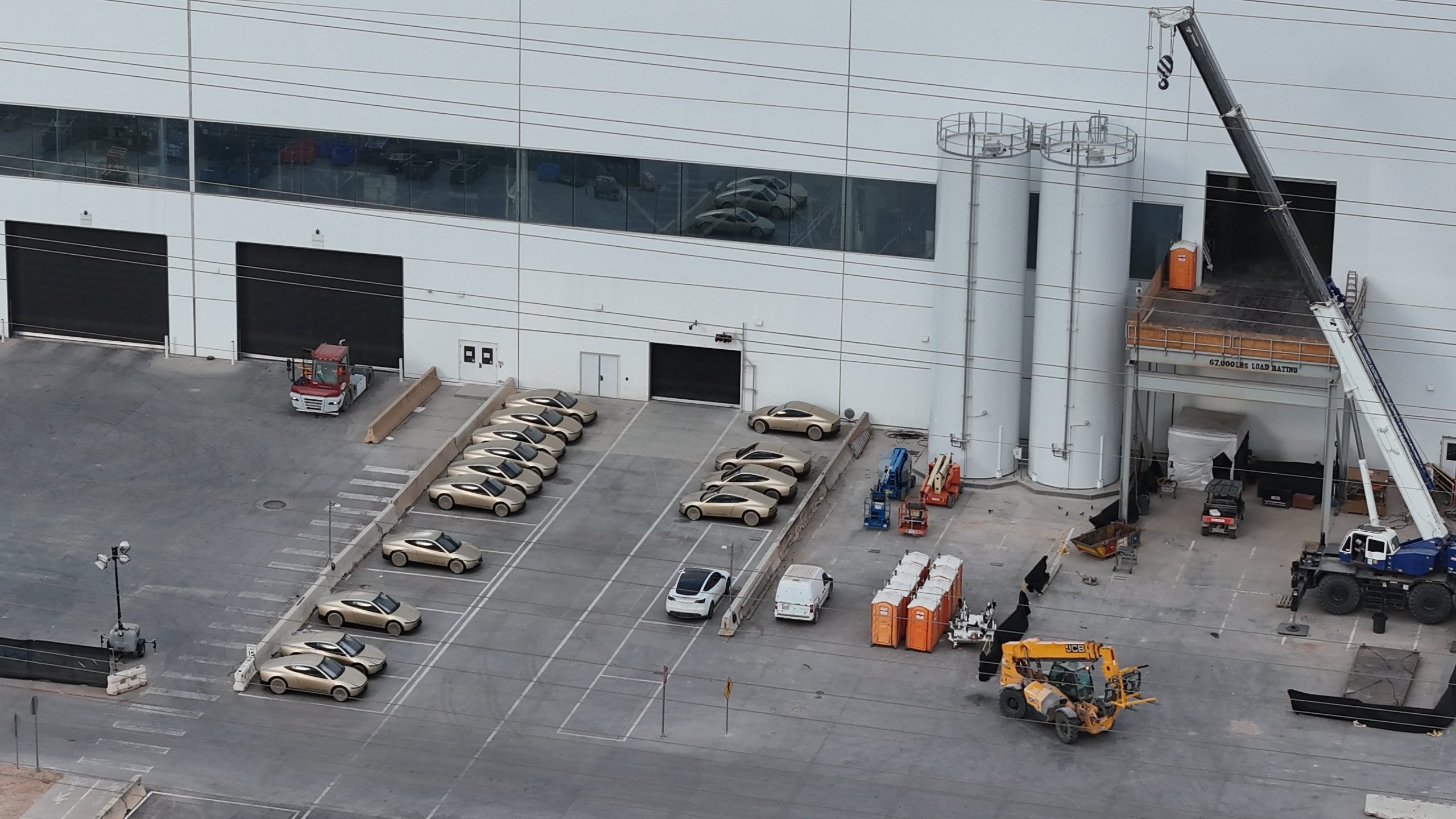
Tesla is seemingly ramping Cybercab test manufacturing ahead of mass production, which is scheduled to begin next month, the company said.
At Tesla’s Gigafactory Texas, production of the Cybercab, the company’s groundbreaking purpose-built Robotaxi vehicle, is accelerating markedly. Drone footage from Joe Tegtmeyer captured striking aerial footage today, revealing what appears to be the largest public sighting of Cyebrcabs to date.
A total of 25 units were observed by Tegtmeyer across the Gigafactory Texas property, marking a clear step-up in testing and validation activities as Tesla prepares for a broader output.
Tesla Cybercab production begins: The end of car ownership as we know it?
In the footage, 14 metallic gold Cybercabs were parked in a tight formation outside the factory exit, showcasing their sleek, autonomous-only design with no steering wheels, pedals, or traditional controls. Another 9 units sat at the crash testing facility, likely undergoing structural and safety validations, while two more appeared at the west end-of-line area for final checks.
Big day for Cybercab at Giga Texas today! Actually, yesterday to kick off March, the production line went into a higher volume & today we see 25 at three main locations, and there were several others I observed driving around too!
I think this may be the largest single grouping… pic.twitter.com/HZDMNv57lJ
— Joe Tegtmeyer 🚀 🤠🛸😎 (@JoeTegtmeyer) March 3, 2026
Tegtmeyer noted additional Cybercabs driving around the complex, hinting at active movement and real-world testing beyond static parking.
This surge follows the first production Cybercab rolling off the line in mid-February 2026, several weeks ahead of the originally anticipated April start.
That milestone, celebrated by Tesla employees and confirmed by CEO Elon Musk, kicked off low-volume builds on the dedicated “unboxed” manufacturing line, a modular process designed to slash costs, reduce factory footprint, and enable faster assembly compared to conventional methods.
Industry observers interpret the jump to dozens of visible units in early March as evidence that Tesla has transitioned into higher-volume test manufacturing.
Tesla still has plans for volume production, which remains between four and eight weeks away, aligning with Musk’s statements that early ramps would be deliberately measured given the Cybercab’s novel architecture and full reliance on Tesla’s vision-based Full Self-Driving technology.
The Cybercab, envisioned as a sub-$30,000 autonomous two-seater for robotaxi fleets, represents Tesla’s bold pivot toward scalable autonomy and robotics.
Tesla fans and enthusiasts on X praised the imagery, with many expressing excitement over the visible progress toward deployment. While challenges remain, including software maturity, regulatory hurdles, and supply chain scaling, the increased factory activity underscores Tesla’s momentum in turning the Cybercab vision into reality.
As Giga Texas continues expanding and refining the manufacturing process of the Cybercab, the coming months will prove to be a pivotal time in determining how quickly this revolutionary vehicle reaches roads in the U.S. and internationally.








